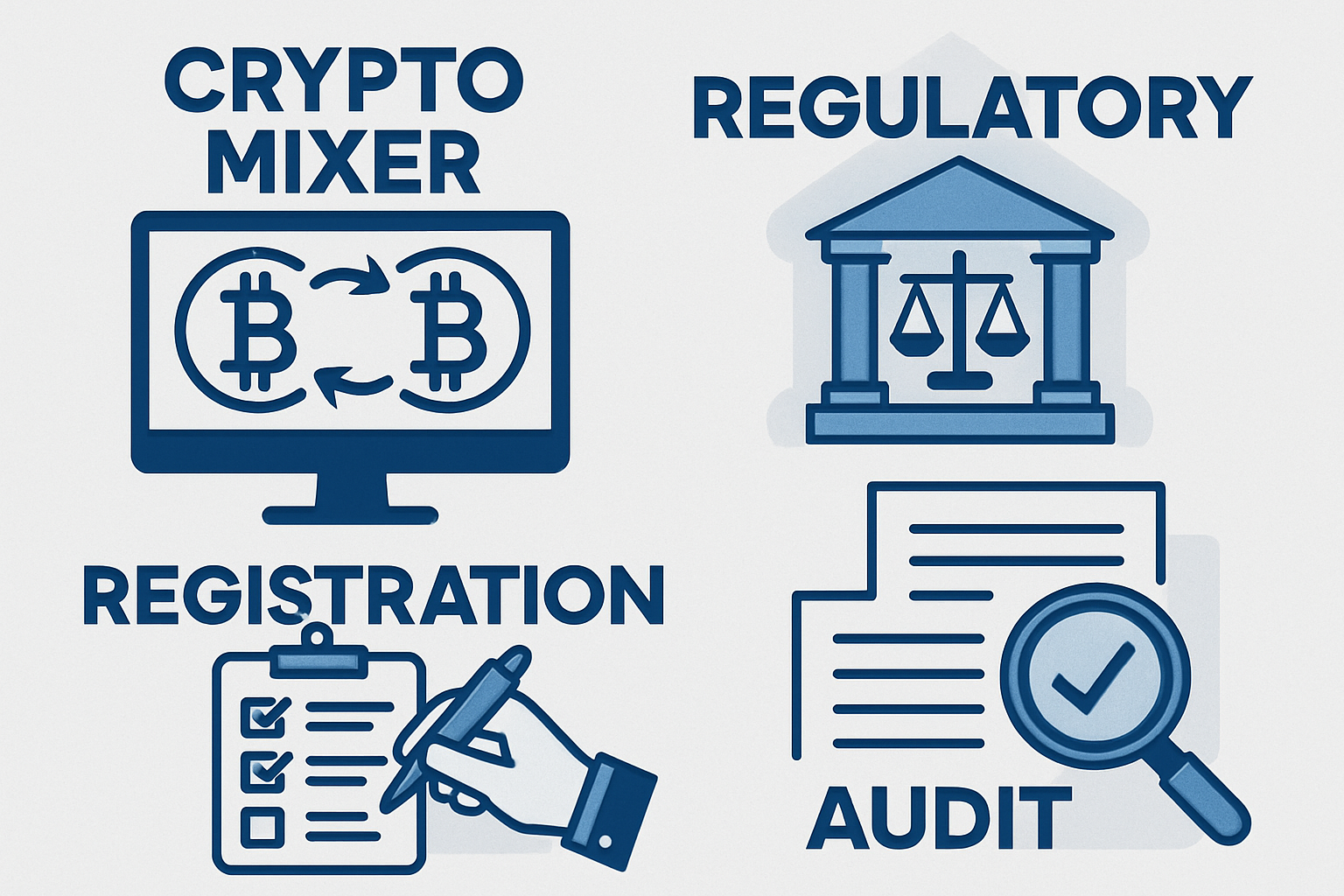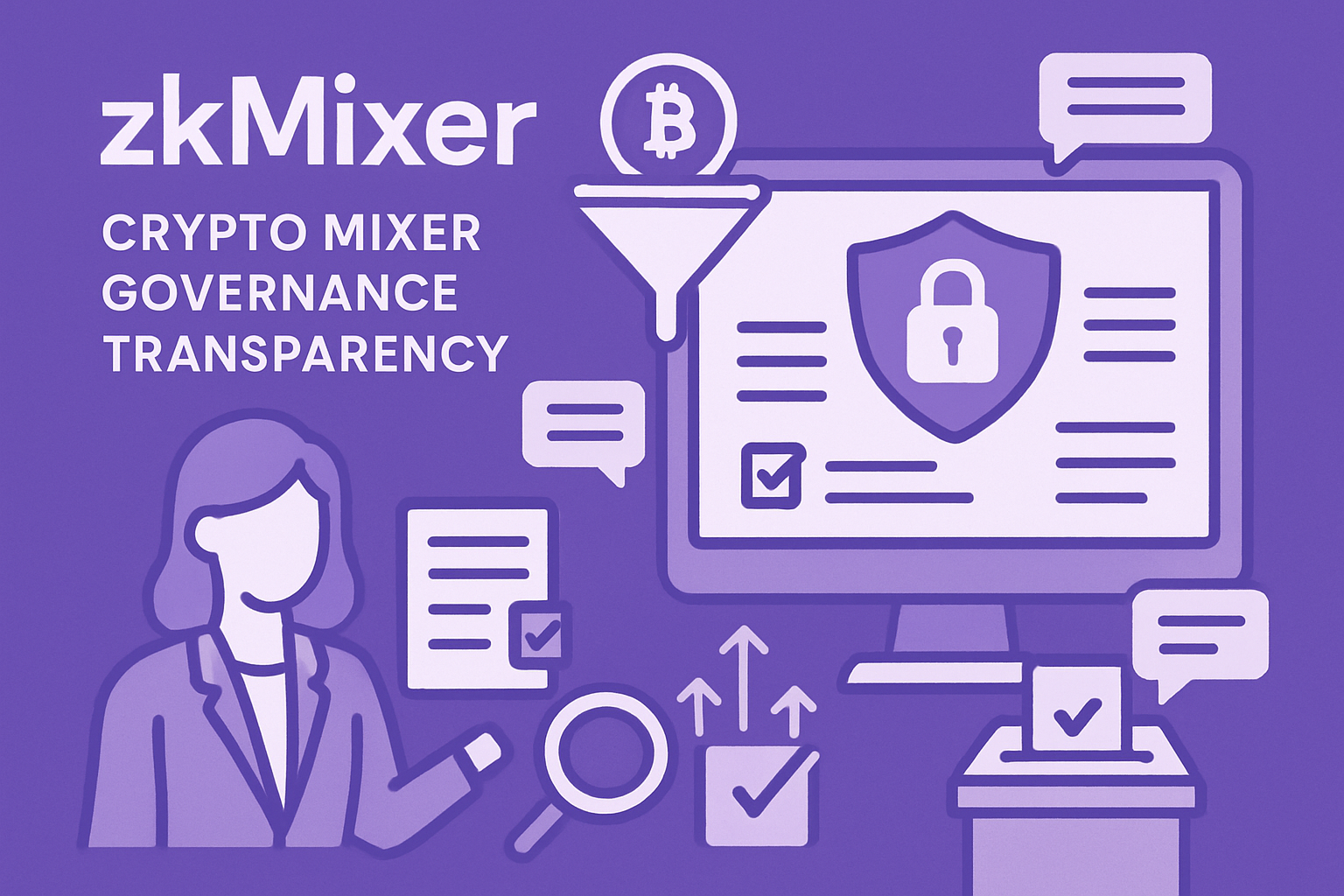
Privacy and compliance have become the two most contentious forces shaping the future of cryptocurrency in 2024. As digital assets gain mainstream adoption, regulatory scrutiny has intensified, especially around privacy-enhancing tools like crypto mixers. These services, which pool and redistribute funds to obscure transaction trails, have been at the center of heated debates between advocates for financial privacy and regulatory bodies determined to curb illicit finance.

The Regulatory Landscape: From Blanket Bans to Nuanced Oversight
Regulated crypto mixers have emerged as a direct response to mounting legal pressures. In May 2024, the U. S. introduced the Blockchain Integrity Act, proposing a two-year ban on mixers for financial entities and threatening civil penalties up to $100,000 for violations. This move followed a pattern set by European regulators, who flagged privacy coins and mixing protocols as significant challenges for law enforcement due to their ability to obscure asset origins.
However, outright bans have proven controversial. Industry leaders like Coinbase and Consensys argue that broad reporting requirements on mixer transactions could result in data overload with little practical benefit for law enforcement, and potentially infringe on legitimate user privacy. The debate is no longer about whether privacy should exist in crypto but how it can coexist with global anti-money laundering (AML) standards.
Privacy-Compliant Crypto Mixers: Technological Innovation Meets Regulation
The compliance-first evolution of regulated crypto mixers is evident in new frameworks that blend privacy with accountability. Notably, Selective De-Anonymization (SeDe) enables collaborative de-anonymization of illicit transactions without compromising everyday user anonymity. SeDe’s multi-entity governance ensures that only transactions flagged through consensus are exposed, offering a middle ground between blanket transparency and unchecked privacy.
Another breakthrough is zkMixer, which leverages zero-knowledge proofs to create mixing pools governed by configurable rulesets. This allows operators to refund or confiscate deposits suspected of criminal origin, aligning with AML directives while maintaining cryptographic privacy for compliant users. Such innovations signal a shift toward privacy compliant crypto mixer solutions designed for both individual and institutional use cases.
Key Features: Regulated vs. Unregulated Crypto Mixers in 2024
-

Mandatory KYC/AML Procedures: Regulated mixers require users to complete Know Your Customer (KYC) and Anti-Money Laundering (AML) checks, while unregulated mixers typically allow anonymous usage without identity verification.
-

Compliance with the Travel Rule: Regulated mixers adhere to the Financial Action Task Force (FATF) Travel Rule, ensuring sender and recipient information is collected and transmitted, unlike unregulated mixers that do not implement these protocols.
-

Selective De-Anonymization Capabilities: Advanced regulated mixers, such as those using the Selective De-Anonymization (SeDe) framework, can reveal transaction details for law enforcement under specific conditions, whereas unregulated mixers lack such mechanisms.
-

Governance and Transaction Oversight: Regulated mixers may employ frameworks like zkMixer, enabling group governance, transaction monitoring, and the ability to refund or confiscate suspicious deposits. Unregulated mixers typically operate without oversight or intervention.
-

Regulatory Registration and Auditing: Regulated mixers are registered with financial authorities (e.g., FinCEN in the US, relevant EU bodies) and are subject to regular audits, while unregulated mixers operate outside official oversight and are often targeted by enforcement actions.
-

Transparency and Reporting Obligations: Regulated mixers maintain transaction logs and comply with reporting requirements for suspicious activity, whereas unregulated mixers do not retain user data or provide transparency to authorities.
KYC/AML Integration: Raising the Bar for Legal Crypto Mixing in 2024
The integration of Know Your Customer (KYC) and AML protocols within compliant cryptocurrency mixers is now standard practice among leading providers. Unlike legacy tumblers that operated without user verification, modern regulated platforms require identity checks at onboarding or withdrawal stages, mitigating risks identified by agencies like FinCEN and aligning with FATF Travel Rule requirements.
This approach not only satisfies regulatory mandates but also reassures users seeking lawful privacy solutions that their activity will not inadvertently intersect with sanctioned entities or illicit flows. For organizations transacting at scale, these assurances are critical when selecting a legal crypto mixing 2024 partner capable of providing robust audit trails without undermining transactional confidentiality.
The Compliance-Privacy Paradox: Striking an Operational Balance
The paradox facing the industry is clear: as regulations tighten, so too does the need for technical safeguards that preserve legitimate anonymity while deterring abuse. The U. S. Treasury’s distinction between “privacy” and “obfuscation” underscores this challenge; tools designed solely to mask asset origins are increasingly seen as national security threats unless paired with mechanisms for selective transparency.
This operational balancing act is shaping not just product design but also market positioning among regulated mixer providers, and will likely define competitive advantage as compliance expectations continue evolving worldwide.
As the regulatory and technological arms race intensifies, privacy-compliant crypto mixers must demonstrate not only innovation but also adaptability. Providers are investing in advanced analytics, transaction monitoring, and cross-jurisdictional compliance teams to anticipate changes in global AML directives. The most successful mixers in 2024 are those that offer granular controls for both users and compliance officers, such as configurable deposit thresholds, real-time risk scoring, and automated reporting triggers for suspicious activity.
Transparency is emerging as a competitive differentiator. Platforms now routinely publish independent audit reports and maintain open channels with regulators to ensure their protocols remain within legal boundaries. This shift is gradually reducing the stigma once associated with crypto mixing, positioning regulated services as essential infrastructure for privacy-conscious individuals and institutions alike.
Looking Ahead: The Future of Regulated Crypto Mixers
The next phase of development will likely see closer collaboration between industry stakeholders and regulators to define standards for privacy-preserving technologies. Expect further adoption of frameworks like SeDe and zkMixer, which provide selective transparency while empowering users to maintain control over their financial data. As new rules emerge from the EU, U. S. , and Asia-Pacific regions, the ability of KYC AML crypto mixer providers to rapidly adjust their protocols will be crucial.
Ultimately, the direction of crypto mixer regulation will hinge on two factors: the effectiveness of technical solutions in preventing abuse without creating backdoors for surveillance, and the willingness of regulators to recognize nuanced approaches that protect both privacy rights and public safety.
Key Benefits of Regulated Crypto Mixers in 2024
-

Enhanced Legal Compliance: Regulated mixers, such as those implementing frameworks like Selective De-Anonymization (SeDe) and zkMixer, are designed to meet AML and KYC requirements, reducing the risk of legal penalties and ensuring alignment with evolving regulations.
-

Mitigation of Sanctions Risk: By adhering to regulatory standards, regulated mixers help users avoid inadvertently engaging with sanctioned entities or wallets, a growing concern highlighted by the U.S. Treasury Department and the European Union.
-

Accountability and Transparency: Solutions like zkMixer offer configurable governance and auditability, enabling the tracing and de-anonymization of illicit transactions when required by authorities, while still protecting legitimate user privacy.
-

Reduced Exposure to Enforcement Actions: Using regulated mixers lowers the likelihood of funds being frozen or seized, as seen with unregulated alternatives targeted by the Blockchain Integrity Act and recent enforcement actions by agencies like FinCEN.
-

Support from Industry Leaders: Regulated mixers are more likely to be integrated with major exchanges and financial institutions, reflecting industry advocacy from organizations like Coinbase and Consensys for privacy solutions that balance compliance and user rights.
For users navigating this complex landscape, due diligence is non-negotiable. Evaluate platforms based on their compliance credentials, transparency commitments, technical safeguards, and responsiveness to regulatory updates. The most reputable mixers are those that can prove both operational integrity and a genuine commitment to user privacy, without cutting legal corners.
The evolution of compliant cryptocurrency mixers in 2024 underscores a fundamental truth: sustainable privacy in digital finance is not about evading oversight but about building trust through responsible innovation. As regulatory clarity improves and technology continues to advance, expect regulated mixers to play a pivotal role in shaping a more secure, and private, future for blockchain transactions.






